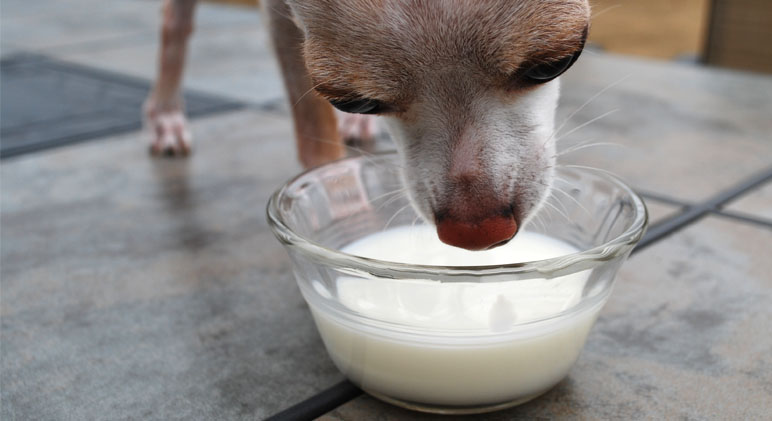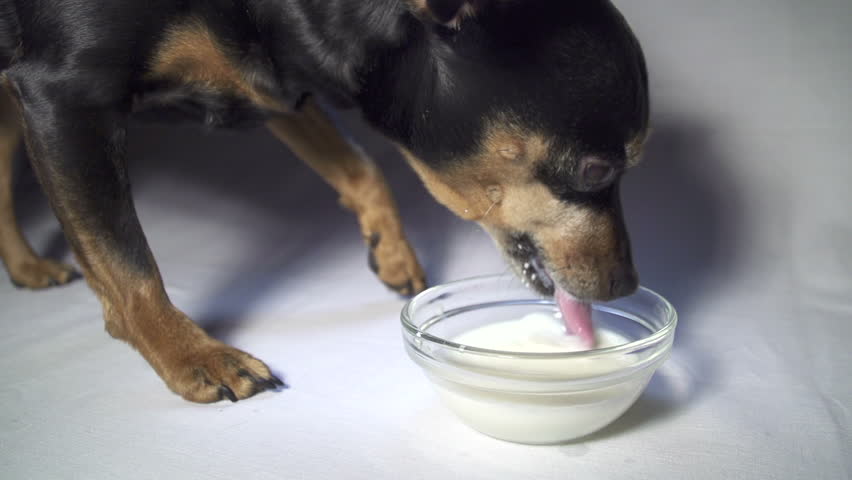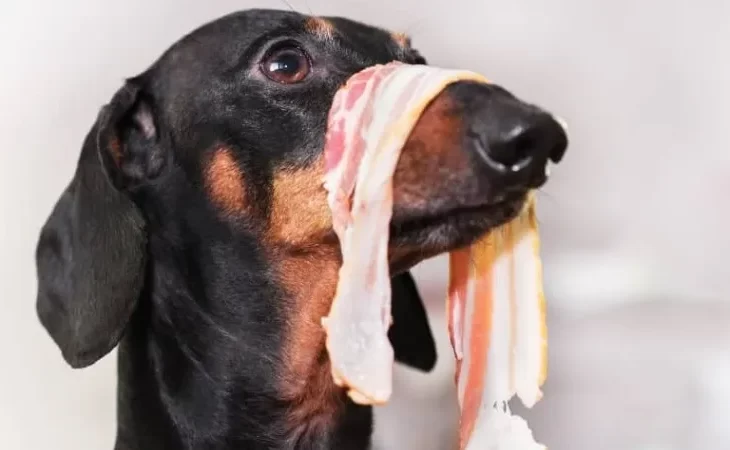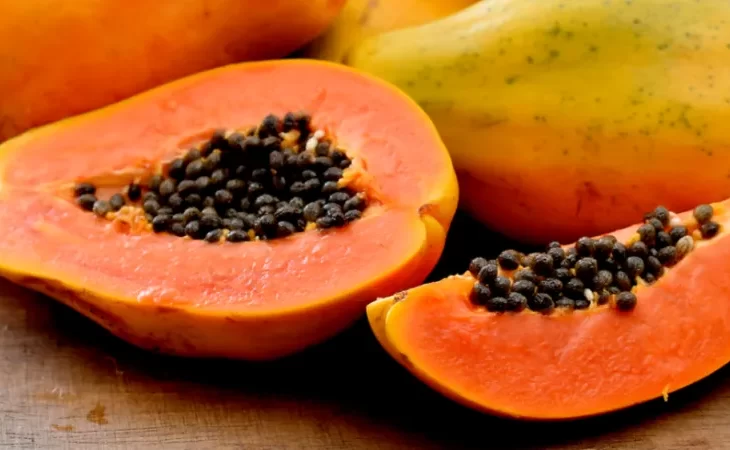
Can Dog Drink Milk? Here’s What You Want To Know
To begin with, can dog drink milk?
In moderation, milk is a safe treat. Your dog may appreciate receiving a few tablespoons of cow’s milk or goat’s milk on occasion. However, it’s probably best to refrain from giving your dog an entire bowl at once because doing so can result in unpleasant side effects like diarrhea, vomiting, and loose stools.
The beverage contains a lot of natural sugars and fat. These can cause pancreatitis and obesity in dogs, both of which are serious conditions, if they are consumed in excess by your dog.
Please continue reading for more information.
Table of Contents
Is Milk Healthy Or Harmful For Dogs?
Vitamin D, potassium, and calcium are all abundant in milk. But does it do anything for our pups, who are constantly thirsty?
There is no justification for dogs to consume milk, according to Dr. Jamie Whittenburg, the director of Kingsgate Animal Hospital in Lubbock, Texas, and a Senior Tail Wagger.
“Milk is one of the top two leading food allergens for dogs, so many cannot tolerate it,” she says.
Signs your dog may have a milk allergy, or a food allergy in general, can include:
- Itchiness
- Licking at their paws
- Red, irritated skin
- Hair loss
- Vomiting
- Diarrhea
Whittenburg adds, “[As milk is high in fat and calories but not filling, it is not a good choice for dogs and may result in uncontrollable weight gain if consumed.”
Whether goat milk is suitable to give to a young puppy may be a concern for you. Whittenburg says goat milk is not a complete or balanced milk, even though it must be pasteurized before feeding, so it is not advised. (Instead, if you need to bottle-feed your dog, use newborn puppy formula.) Goat milk is not necessary or filling for adult dogs, and it might upset their stomachs.
Given that, if Fido can tolerate it, it’s probably okay to give him a small amount of milk every now and then. “In moderation” is usually best when it comes to human foods we can safely share with our dogs!
When Is Milk Allowable For Dogs?
You may be thinking: “Puppies don’t consume their mother’s milk, do they?” And yes, that is the response to the query. “Milk contains a sugar called lactose that requires an enzyme called lactase for digestion,” explains Brausa. “The enzyme is typically abundant in puppies because it is used to break down their mother’s milk while they nurse.” While puppies thrive on their mother’s milk, later in life they might not be able to tolerate the cow’s or goat’s milk you find in your fridge.
Are Canine Milks Safe For Them?
Plant-based milks are produced without the use of dairy. Does that mean that they are now safer for dogs to drink? They may surprise you, but Whittenburg asserts that they aren’t any better for dogs.
Like cow’s milk, plant-based milks are not toxic to dogs, but the same issues exist … which is why Whittenburg doesn’t recommend giving any milk to dogs.
“Plant-based milks are often an allergen for many dogs, and even in dogs that are not allergic, they can cause stomach and gastrointestinal upset,” she says.
According to Whittenburg, plant-based milks, like cow’s milk, do not make dogs feel satisfied but instead are high in calories and fat, which, if consumed frequently, can result in unwanted weight gain. An additional concern with plant-based milks, she says, is that “the sweetened versions may contain artificial sweeteners that may be toxic to dogs.”
Almond Milk
Although almonds and almond milk seem healthy, neither is advised for dogs. According to Whittenburg, almond milk is high in fat, calories, and artificial sweeteners (like xylitol) that can harm your dog.
Oat Milk
It’s become common for us humans to choose oat milk, a tasty milk substitute. Oat milk is made with safe ingredients like rolled oats and water, but Whittenburg advises against feeding it to your dog on a regular basis due to its high fiber content. Your dog might experience stomach upset as a result.
Coconut Milk
Coconut milk is yet another human favorite, but it should generally be avoided because it might be an allergen, has minimal nutritional value, and can cause upset stomach in our canine companions.

What Kind Of Milk Can Dogs Drink?
The digestive system of your dog will react differently to various types of milk. Here are a few common types of milk and advice for dog owners about whether or not the milk product is safe for pets:
- Almond milk: Lactose-intolerant dogs can occasionally treat themselves to a drizzle of this lactose-free milk, which is made from almonds and water.
- Milk with flavorings like strawberry, chocolate, or vanilla: Due to their higher sugar and fat contents, flavored milks are not suitable for use as dog treats. Additionally, some flavorings in milks have the potential to contain xylitol, an artificial sweetener that is toxic to dogs even in minute quantities.
- Goat milk: Just like cow’s milk, goat’s milk has a high lactose content, making it unsafe for dogs who are lactose intolerant to consume.
- a puppy’s mother’s milk is safe to drink. Although lactose is present in the milk that adult dogs produce after giving birth, nursing puppies’ digestive tracts overproduce the lactase enzyme to aid in the digestion of their mother’s milk. Their bodies don’t start producing less lactase until they reach adulthood. Avoid substituting cow’s milk for milk that nursing-age puppies need; instead, choose one of the commercial dog milk alternatives if they don’t have access to a mother to nurse from.
- Oat milk: Made from oats and water, this lactose-free milk doesn’t cause lactose intolerance like cow’s milk does, so it’s safe for dogs to consume in moderation.
- Plain yogurt, a milk derivative, contains lactose and should not be given to dogs who are lactose intolerant.
- Soy milk: Made from soybeans and water, soy milk does not contain lactose and is safe for dogs to consume in moderation. Unlike cow’s milk, which can cause lactose intolerance, soy milk does not have the same health risks.
Lactose Intolerance In Dogs
The most common cause of food intolerance in dogs is dairy products. Many dogs struggle to digest milk because they are lactose intolerant. While some lactose-intolerant dogs have trouble drinking milk, they can tolerate simpler-to-digest dairy items like cheese and plain yogurt. There’s a chance that other puppies won’t react well to dairy in general.
Are Dogs Susceptible To Lactose Intolerance?
After weaning, puppies produce less lactase, which is when most dogs actually develop lactose intolerance. The same symptoms that affect lactose intolerant people can also affect lactose-intolerant dogs. “Dogs have varying degrees of lactose intolerance, so some dogs who drink milk may just experience mild GI distress, or none at all, while others will have severe clinical signs,” shares Additionally, milk and dairy products are frequent causes of food allergies in dogs, according to Brausa. “A food allergy to milk or dairy can appear as irritation of the skin, redness, itching and GI upset such as vomiting and diarrhea,” says Liff.
How To Tell If Your Dog Is Lactose Intolerant
Dogs’ levels of lactose intolerance can vary; some may only have mild symptoms, while others may have more serious problems. The most common symptoms are:
- Loose stools
- Gas
- Vomiting
- Abdominal pain
- Diarrhea
Many dog owners do not realize their dogs are lactose intolerant until they give them milk. If your dog has consumed a lot of milk, it can be difficult to tell if he or she is lactose intolerant because excessive milk consumption can cause vomiting and diarrhea in dogs of all ages, including those who are not lactose intolerant. Finding a different treat is advised if your dog exhibits these symptoms following a small amount of milk consumption.
Before introducing any new foods or supplements to your dog’s diet, always check with your veterinarian. Read more about additional foods that dogs can and cannot eat.
How Would It Affect Your Dog If It Drank Milk?
Adult dogs may have a harder time digesting milk if there isn’t a lot of the enzyme lactase to do the job. Their GI tracts will allow the lactose in milk to pass through undigested into their colons, where it will draw in water and cause diarrhea. The fermentation of bacteria in their colons may also cause flatulence and discomfort. “Due to the deficient levels of lactase, milk ingestion can lead to GI upset including diarrhea and vomiting,” says Liff. “Whole fat milk and other dairy products may also be overly fatty and cause nausea, vomiting, and diarrhea.” If dogs consume unfamiliar dairy products, particularly high fat dairy products, they may also develop a potentially serious condition called pancreatitis.
What To Do If Your Dog Drinks Milk
Unless your dog is allergic, it should not be a big deal if your pet occasionally laps milk or other dairy products from your cup or licks your ice cream cone. However, you should try to limit your pet’s access to dairy products in general. “GI upset will generally occur within 12 hours or so of consuming milk,” says Therefore, for the duration of that time, keep an eye out for any abdominal distress or discomfort, including vomiting and/or diarrhea, if your pet unintentionally gets his paws on a larger helping than you had intended.
Final Words
Consult your veterinarian before adding any human foods to your dog’s diet to make sure it’s safe because some human foods can make dogs react poorly. This article is not intended to replace professional medical or dietary advice; rather, it is meant to be educational and informative.
Many thanks for reading.




